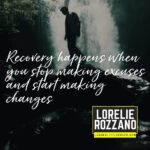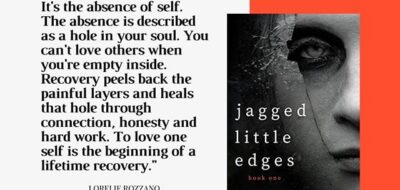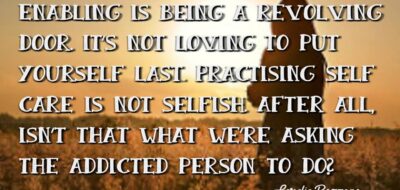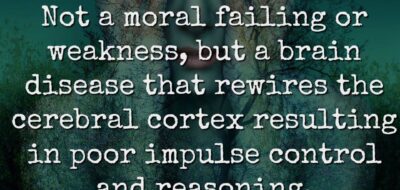As a person in long-term recovery working with families, it’s evident that substance use disorder devastates everyone in its path. Addiction is a soul-destroying disease, and in the throes of getting high, folks seldom think about how their actions affect the people who love them.
Yet, addiction isn’t a singular act. It goes hand in hand with enabling and codependency.
Enabling is doing for someone what they can and should be doing for themselves.
Codependency is an intense and pathological dance of giving but not giving in the way you think. The codependent gives, the addict takes, which allows the addicted person to focus solely on their primary relationship, which is their drug of choice.
An example of this is my recent conversation with John, a lovely 63-year-old man. John was clearly distraught when I spoke with him and admitted that he had nothing left. John lives in a rented basement suite and has spent his retirement savings on his son. To make matters worse, John’s partner of five years is no longer with him. She left because she couldn’t tolerate John’s willingness to financially bankrupt himself to accommodate his son’s wishes. John himself was baffled by this and couldn’t understand it, either. John was lost, broken, and alone. Now that John had no more money to give, his son had moved on, and John was crushed.
John is one of many whose stories play out this way.
Behind every person struggling with addiction is a family in extreme distress.
Because the family becomes so intensely focused on their addicted loved one, they may not see how unmanageable their own lives have become.
Although the family doesn’t often come to treatment for an inpatient experience, some do. Having enjoyed working with these folks, I realize they need and deserve the same love and support as their addicted loved ones.
People who enable can be excessively compliant, which the substance abuser takes advantage of. Family members may feel guilty for taking care of their needs and view self-care as selfish. Codependents want everyone to be happy, leaving them in the role of peacekeeper and people-pleaser. They will please others at their own expense. People-pleasing becomes a way of life, leaving them exhausted, resentful, and burned out. People-pleasers feel taken advantage of, and yet they refuse to set limits. They struggle with overwhelming feelings of guilt when they say no or try to set boundaries.
Addiction and codependency fit together like a lock and key; they need each other to reach their full potential.
A person struggling with addiction who has no one enabling them is forced to face the consequences of their actions. It’s these consequences that drive them to seek help. When families enable and tolerate abusive, neglectful, manipulative behavior, it’s a significant roadblock to their loved one’s recovery.
Families don’t intentionally get in the way. They’re doing the best they can in a highly challenging situation. However, uneducated families are up against something far more powerful than themselves. Addicted loved ones wanting their next fix will stay on you and wear you down. They know how to push your buttons and turn that no into a yes. Simply put, one on one, addiction wins every time.
But you can change that…
Don’t wait for your addicted loved one to seek help. Get up, reach out, and lead the way.
Education, support groups, and boundaries are game-changers, as statistics show addicted persons are most successful when their families are informed and involved in their own healing journey.





